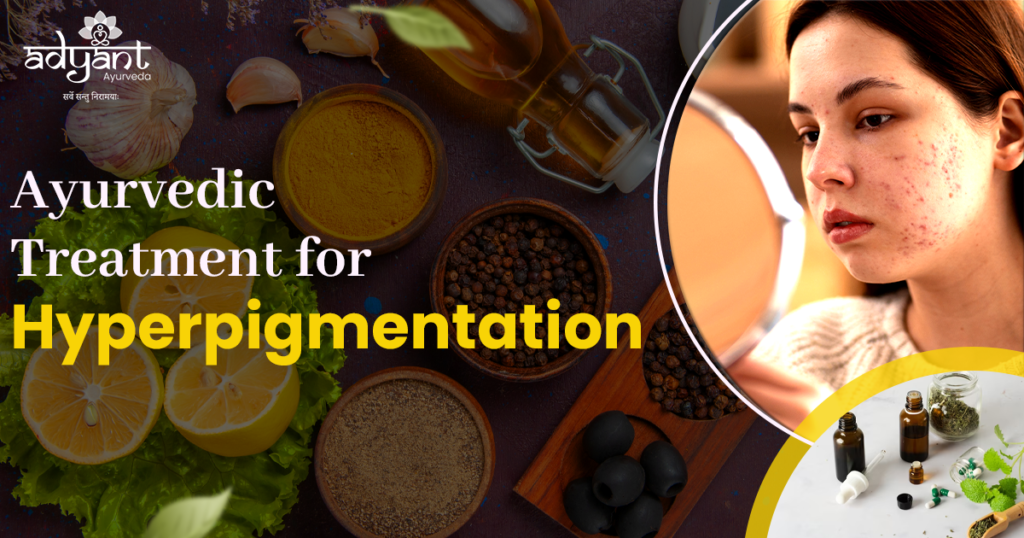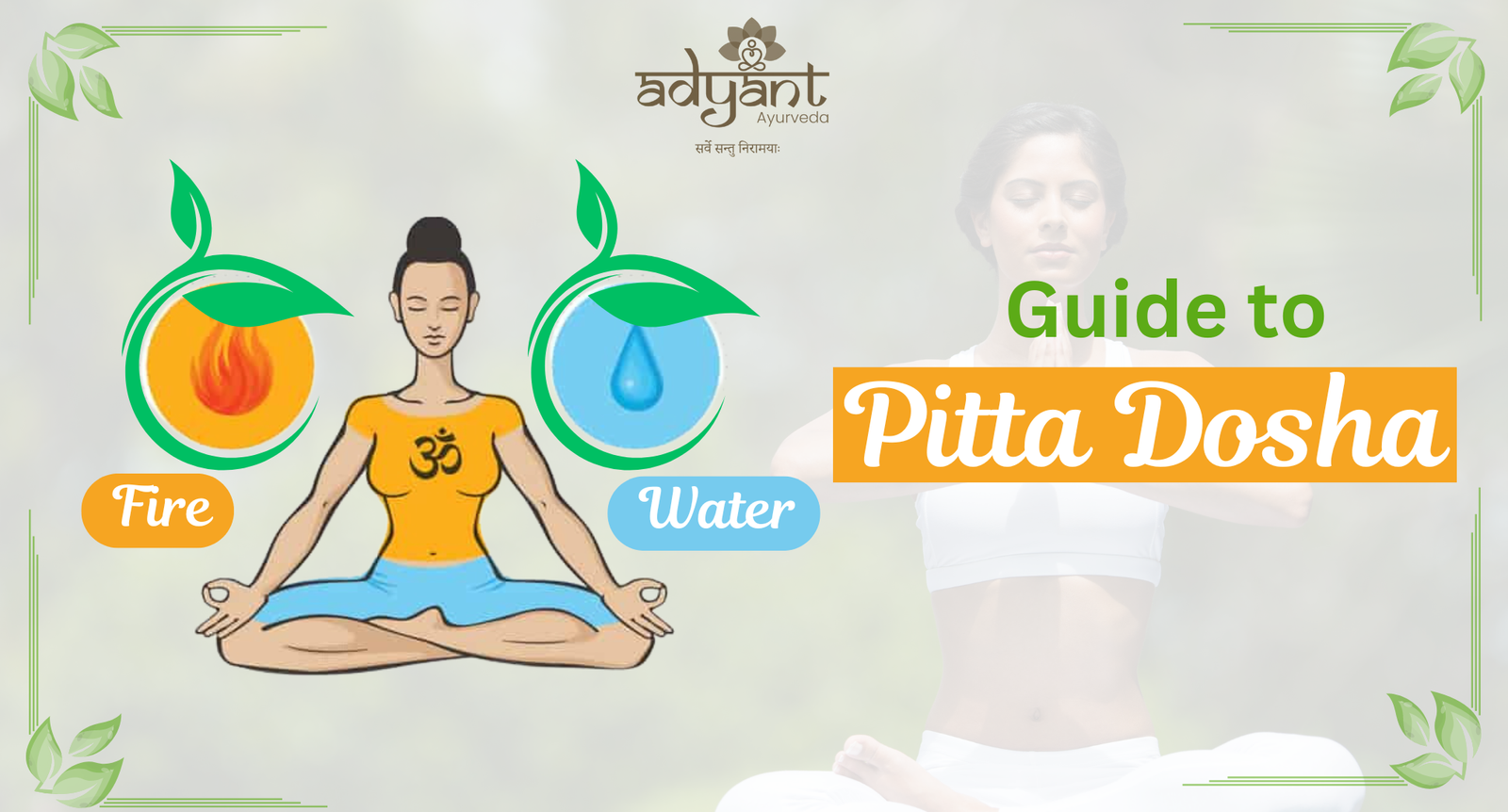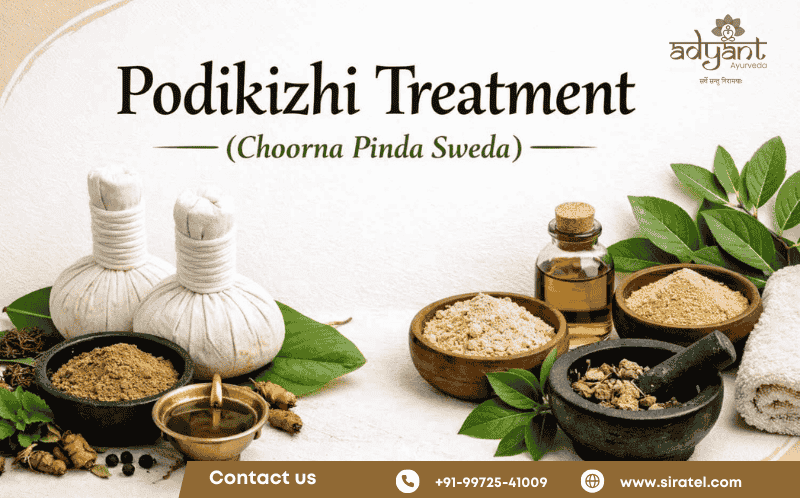Ayurvedic Treatment for Hyperpigmentation: A Holistic Approach to Glowing Skin
Hyperpigmentation is a common skin concern that results in dark patches and uneven skin tone. According to Ayurveda, this condition is often caused by an imbalance in the doshas, particularly Pitta and Kapha, leading to excess melanin production. Unlike conventional treatments that focus on superficial skin-lightening, Ayurveda targets the root cause, detoxifies the body, and restores skin health naturally.
In this blog, we will explore effective Ayurvedic treatments for hyperpigmentation, including herbal remedies, Panchakarma therapies, dietary changes, and lifestyle modifications.
For free consultation with top ayurvedic doctors download our app from the play store “AyurCare“
Understanding Hyperpigmentation in Ayurveda
Ayurveda classifies hyperpigmentation under Vyanga (facial discoloration) and Neelika (bluish-black pigmentation). The primary reasons behind this condition include:
Pitta Dosha Aggravation: Excess heat in the body leads to increased melanin production.
Kapha Dosha Imbalance: Excess oil and toxins clog the skin, leading to dark patches.
Ama (Toxin) Accumulation: Poor digestion results in the buildup of toxins, affecting skin clarity.
Hormonal Imbalance: Increased estrogen levels can trigger pigmentation issues like melasma.
Excess Sun Exposure: UV rays stimulate melanocytes, leading to uneven skin tone.
Stress and Poor Lifestyle: High-stress levels and irregular sleep patterns can impact skin health.
Common Types of Hyperpigmentation
Melasma – Hormonal pigmentation, often seen during pregnancy.
Post-Inflammatory Hyperpigmentation (PIH) – Dark spots after acne, injuries, or burns.
Sunspots (Liver Spots) – UV exposure-induced pigmentation, common in aging skin.
Freckles – Genetic pigmentation, worsened by sun exposure.
Best Ayurvedic Herbs for Hyperpigmentation
Ayurveda utilizes powerful herbs that have skin-brightening, detoxifying, and melanin-reducing properties. Some of the most effective herbs include:
1. Manjistha (Rubia cordifolia)
Known as a natural blood purifier, it detoxifies the skin and reduces pigmentation.
How to use: Take Manjistha powder with honey or apply it as a face pack mixed with rose water.
2. Neem (Azadirachta indica)
Fights skin infections, reduces inflammation, and clears dark spots.
How to use: Neem paste mixed with turmeric can be applied to pigmented areas.
3. Turmeric (Curcuma longa)
Curcumin, the active compound, inhibits excess melanin production.
How to use: Turmeric and sandalwood paste applied twice a week helps lighten dark patches.
4. Aloe Vera (Kumari)
Hydrates the skin, promotes healing, and reduces sun-induced pigmentation.
How to use: Fresh aloe vera gel can be applied daily before bedtime.
5. Lodhra (Symplocos racemosa)
Controls excess oil production and promotes even skin tone.
How to use: Lodhra powder mixed with honey can be applied as a face mask.
6. Yashtimadhu (Licorice Root)
Inhibits tyrosinase (an enzyme that triggers melanin synthesis).
How to use: Apply licorice extract mixed with milk as a natural skin-lightening serum.
Ayurvedic Panchakarma Therapies for Hyperpigmentation
Panchakarma treatments detoxify the body, eliminate toxins, and promote skin rejuvenation.
1. Virechana (Therapeutic Purgation)
Flushes out Pitta-related toxins that cause pigmentation disorders.
Procedure: Herbal laxatives like Triphala and castor oil are used under Ayurvedic supervision.
2. Raktamokshana (Blood Purification Therapy)
Removes impure blood and improves skin clarity.
Procedure: Leech therapy or cupping is performed at Ayurvedic clinics.
3. Nasya (Nasal Therapy)
Treats hormonal imbalances that lead to melasma.
Procedure: Medicated oils like Anu Taila are administered through the nostrils.
Ayurvedic Diet for Hyperpigmentation
What you eat plays a crucial role in skin health. Ayurveda recommends the following diet for reducing pigmentation:
Foods to Include:
Cooling Fruits: Pomegranate, grapes, and watermelon help balance Pitta.
Leafy Greens: Spinach, kale, and coriander detoxify the blood.
Healthy Fats: Ghee and coconut oil nourish the skin from within.
Herbal Teas: Manjistha and neem tea help purify the bloodstream.
Foods to Avoid:
Spicy & Oily Foods: Can aggravate Pitta, worsening pigmentation.
Fermented Foods: Can trigger Kapha imbalance, leading to dull skin.
Excess Caffeine & Alcohol: Dehydrate the skin, making pigmentation worse.
Daily Ayurvedic Skincare Routine for Hyperpigmentation
A well-structured Ayurvedic skincare routine helps in fading pigmentation naturally.
Morning Routine:
Cleanse: Wash your face with a herbal cleanser made of besan (gram flour) and turmeric.
Tone: Apply rose water or neem-infused toner.
Moisturize: Use Kumkumadi Tailam (Ayurvedic saffron oil) for a glowing complexion.
Sun Protection: Apply Aloe Vera gel before stepping out.
Night Routine:
Double Cleansing: Remove dirt with raw milk and wash with neem face wash.
Exfoliate (Twice a Week): Use a gentle scrub made of sandalwood and almond powder.
Apply Face Pack: Use a Manjistha and honey face mask for brightening.
Overnight Treatment: Apply Yashtimadhu (Licorice) extract for skin repair.
Home Remedies for Hyperpigmentation
1. Sandalwood & Rose Water Face Pack
Ingredients: 1 tsp sandalwood powder + 2 tbsp rose water
How to use: Apply for 15 minutes and rinse.
2. Aloe Vera & Lemon Juice Mask
Ingredients: 1 tbsp aloe vera gel + 5 drops lemon juice
How to use: Apply on dark patches, leave for 10 minutes, and rinse.
3. Milk & Turmeric Brightening Mask
Ingredients: 1 tsp turmeric + 2 tbsp raw milk
How to use: Apply for 10 minutes, wash off for an even complexion.
FAQs About Ayurvedic Treatment for Hyperpigmentation
1. How long does it take for Ayurvedic treatment to show results?
Visible improvement can be seen in 4 to 8 weeks, but complete healing may take 3 to 6 months, depending on skin type and severity.
2. Is Ayurveda safe for treating hyperpigmentation?
Yes! Ayurvedic treatments are chemical-free, natural, and safe with no side effects.
3. Can Ayurveda cure melasma permanently?
Ayurveda treats melasma by balancing hormones, detoxifying the blood, and reducing melanin production, offering long-term relief.
Conclusion: Achieve Radiant Skin with Ayurveda
Hyperpigmentation can be effectively managed through Ayurveda’s holistic approach, which includes herbal remedies, Panchakarma detox, dietary changes, and daily skincare practices. At Adyant Ayurveda, our experienced doctors provide personalized Ayurvedic treatments to help you achieve clear, glowing skin naturally.
For expert consultation, visit Adyant Ayurveda in Bangalore today and begin your journey towards pigmentation-free skin!
📞 Book a Consultation: Call 9972541009 to schedule your appointment.
🌿 Follow us for Ayurvedic tips!









